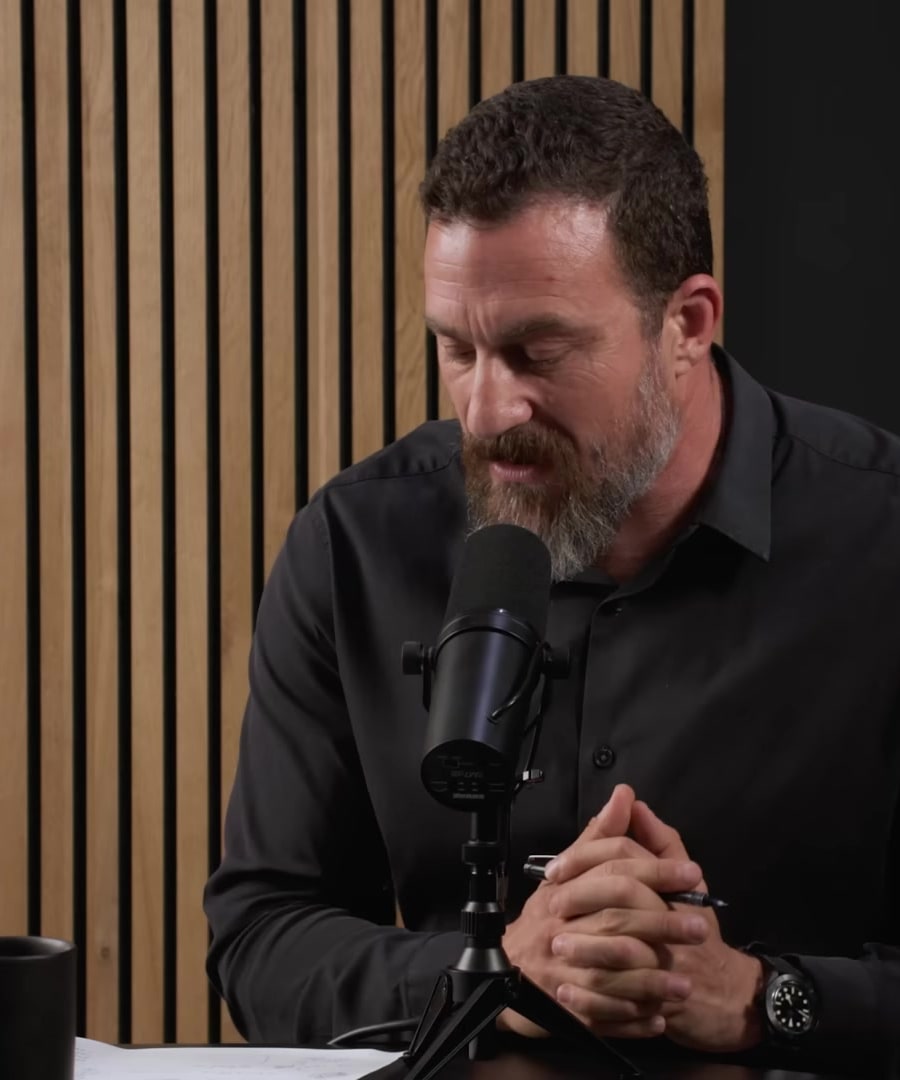sleep
Sources:
Here are some insights from the related to sleep:
-
Sleep's Impact on Memory and Learning:
- Sleep is crucial for strengthening and integrating memories, enhancing both individual connections and broader information networks. This process improves creativity and problem-solving abilities 1 2.
- Sleep facilitates emotional and mood regulation, acting almost like an emotional reset, improving how we respond to stress and challenges the following day 2.
-
Sleep Apnea:
- Sleep apnea, a condition where breathing is impaired during sleep, can lead to serious health issues like cardiovascular events, cognitive dysfunction, and sexual dysfunction. It's often associated with snoring and daytime sleepiness or anxiety 3.
- Treatments include using a CPAP device or learning to nasal breathe during sleep, sometimes through mouth taping to prevent mouth breathing 3.
-
Optimal Sleep Strategies:
- Daily deep relaxation techniques, like NSDR scripts or Yoga Nidra, can significantly improve sleep quality and ease falling asleep 4.
- Limiting caffeine intake, especially after 4 PM, and being mindful of the timing and intensity of evening exercise can help maintain a consistent circadian rhythm and improve sleep 4.
-
The Importance of Naps:
- Naps can boost learning, emotional stability, and cognitive functions. However, they should be timed carefully. Avoid late-day naps to prevent disrupting nighttime sleep. If struggling with insomnia, avoid napping to build substantial sleep pressure for the night 5.
-
Decoding Sleep Stages:
- Sleep consists of cycles, alternating between non-REM and REM sleep stages, each contributing differently to memory consolidation and emotional regulation. Understanding these stages helps in optimizing sleep quality and timing 6.
By following these insights, you can improve your sleep quality and overall well-being.
RELATED QUESTIONS-
what are the best huberman podcasts to listen to that cover insomnia? what time stamps should i listen to?
Sources:
Here are some of the best episodes and specific timestamps from the that address insomnia and sleep optimization:
-
Episode:
- Timestamp: Start at 00:06:50
- Highlights: Dr. Walker covers the importance of sleep quality, behavioral protocols, and factors impacting sleep like naps, light, temperature, supplements, and more 1.
-
Episode:
- Timestamp: Start at 01:00:17
- Highlights: This episode focuses on the entire sleep series recap, giving actionable items for optimizing sleep and understanding individual sleep needs 2.
-
Episode:
- Timestamp: Start at 01:19:58
- Highlights: This episode covers detailed strategies to master sleep and maintain alertness, including the impact of light, temperature, and supplements 3.
-
Episode:
- Timestamp: Start at 00:08:00
- Highlights: Discussions on the do's and don'ts of sleep, such as light exposure, temperature control, and managing the impact of caffeine and alcohol on sleep 4.
These episodes provide comprehensive strategies and scientific insights into managing insomnia and optimizing sleep quality.
RELATED QUESTIONS-
What are the best solutions for insomnia?
Sources:
Here are some recommended solutions for insomnia discussed on the by and his guests:
-
Sleep Schedule Adjustment
- Delaying bedtime gradually to build up sleep pressure can help reset the sleep cycle. For instance, if you wish to sleep from 10 PM to 6 AM but often wake up at 4 AM, try sleeping at 11 PM and push the time further each day until you achieve a full night's sleep 1.
-
Cognitive Behavioral Therapy for Insomnia (CBTI)
- CBTI involves working with a clinician to tailor strategies for overcoming insomnia. One effective method is bedtime rescheduling, which forces the brain to be efficient by restricting time in bed. Over time, this can improve sleep quality 2.
-
Sleep Environment and Habits
- Minimize time spent in bed awake; if you can't sleep, get up and do something to distract your mind from stress and anxiety. Meditation before bed can also help calm the mind and reduce the harmful effects of rumination 3.
-
Supplements and Medications
-
Nutritional Interventions
- Consuming carbohydrates before bed or with the last meal of the day can sometimes aid in calming the body and improving sleep. This might include a meal with carbs at dinner or a snack before bed for those who find it helpful 4.
-
Stress Reduction Techniques
- Chronic stress can hinder sleep. Supplements like Ashwagandha, which helps reduce cortisol levels, can be taken later in the day or in the evening to alleviate stress and support better sleep quality 5.
Implementing these strategies may help in managing insomnia and improving sleep quality. Always consult a healthcare professional before starting any new supplement or making significant changes to your sleep regime.
RELATED QUESTIONS-
sleep
- RELATED QUESTIONS
what are the best huberman podcasts to listen to that cover insomnia? what time stamps should i listen to?
- RELATED QUESTIONS
What are the best solutions for insomnia?
- RELATED QUESTIONS














